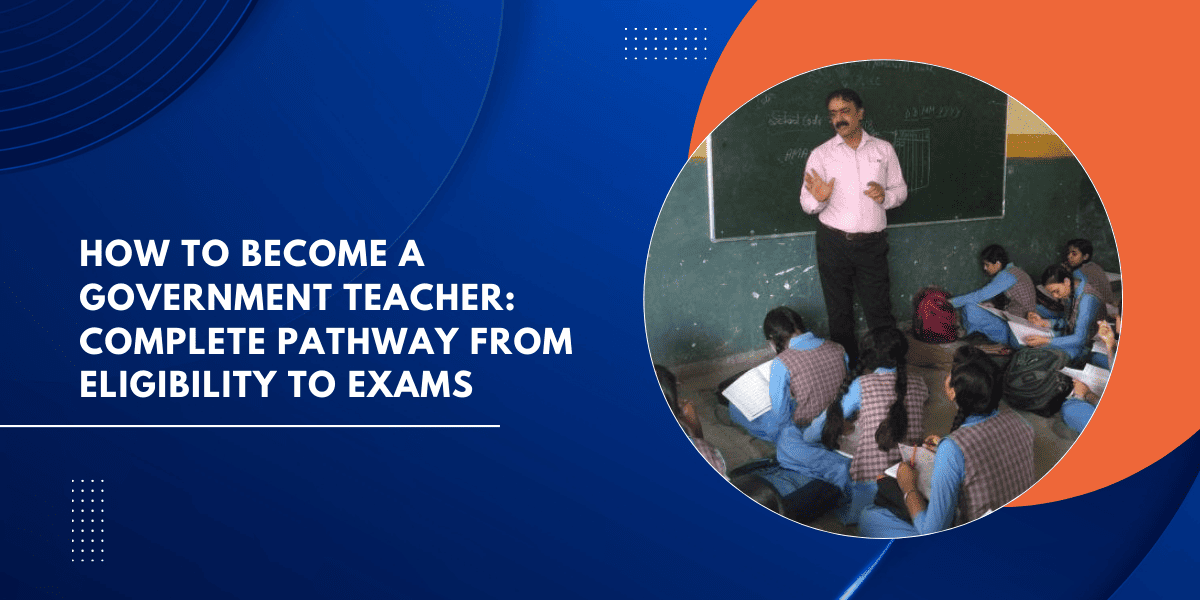“Blog written by Preethi Durga, a career strategist and education innovator.”
Have you ever worried that your child might regret their career choice? You’re not alone. Many parents face this dilemma after Grade 10, wondering whether their child’s passion will translate into a stable and fulfilling career. Did you know that nearly 38% of students regret their chosen course of study? The pressure to make the right decision can feel overwhelming, but with the right guidance, your child can pursue a career that is both meaningful and future-proof.
If your child is drawn to history, literature, culture, and technology, Digital Humanities (DH) could be the perfect blend of their interests. But what exactly is Digital Humanities, and how can it lead to a rewarding career? Let’s explore this exciting field together and uncover how technology and humanities are shaping the careers of tomorrow.
Why This Decision After Grade 10 is Critical?
“One wrong choice today can impact your child’s future career happiness.”
As a parent, you want the best for your child. But when Grade 10 arrives, the pressure to choose the right academic stream or career path can be overwhelming. What if they make the wrong choice? What if they regret it later?
Many parents unknowingly fall into common traps—choosing a stream based on job security, social status, or even family expectations. According to the meta-analysis published in the Journal of Child and Family Studies, there is a significant impact of parental cognitions, behaviors, and relationships on youths’ career decision-making self-efficacy. This underscores the profound effect parental expectations can have on children’s career choices.
When students pick the wrong stream, they often struggle with disinterest, academic burnout, and later, career dissatisfaction. This crucial decision isn’t just about academics; it’s about laying the foundation for a fulfilling and successful career.
The Hidden Traps Parents Fall Into
1. Comparative Parenting Syndrome (CPS) and Peer Pressure
It’s natural to compare your child’s choices with their peers, but every child is unique. Just because a neighbor’s child is excelling in science doesn’t mean your child should pursue it too. The pressure to conform can lead to misguided decisions.
For example, Riya’s parents saw that her best friend chose commerce, so they encouraged Riya to do the same, even though she had a strong interest in biology. As a result, she struggled in her studies, felt disconnected from her subjects, and eventually had to switch streams, wasting valuable time and effort. Instead of comparing, parents should focus on their child’s individual strengths and passions.
Tip: Have an open discussion with your child about their interests and aspirations. Encourage them to research different career paths rather than following their peers blindly.
2. Myths About ‘Safe’ Career Choices
I have experienced that many parents still believe that medicine, engineering, or law are the only reliable career paths. But the job market is evolving rapidly, and non-traditional careers like digital marketing, AI development, and content creation are now highly lucrative.
Take Ankit, for example. His parents pushed him into engineering because they believed it guaranteed job security. However, his true passion was gaming and software development. After struggling through engineering, he eventually pivoted to game design, where he found both success and satisfaction. According to the U.S. Bureau of Labor Statistics (BLS), fields such as cybersecurity, UX/UI design, and data science offer incredible opportunities that didn’t exist a decade ago. Parents need to stay informed about emerging careers instead of relying on outdated notions of job security.
Tip: Explore career trends and growth industries with your child. Websites like LinkedIn, Glassdoor, and Coursera offer insights into emerging fields and skill demands.
3. Emotional vs. Logical Decision-Making
Some parents let emotions take over—wanting their child to fulfill unfulfilled dreams or choosing what “feels” right rather than making data-driven decisions based on aptitude and interest.
For instance, Meera’s father had always wanted to be a doctor but couldn’t pursue it due to financial constraints. When Meera showed some interest in biology, he immediately encouraged her to become a doctor, ignoring her actual strengths in creative writing and storytelling. As a result, Meera found herself trapped in a field she had no passion for. Instead, her parents could have helped her explore careers in medical writing or science communication, bridging her interest in biology with her natural writing talent.
I would suggest that making career decisions should be a mix of heart and mind—parents should provide emotional support while also using career assessment tools, industry trends, and expert guidance to ensure their child chooses the best path.
Tip: Encourage your child to take career assessment tests to understand their strengths and interests. Seek career counseling services for an objective analysis of potential career paths.
Aarav’s Story – What Went Wrong?
Aarav was a bright student with a passion for design. However, his parents believed engineering was the only respectable option. Despite excelling in art, he was pushed into the science stream. Over time, he lost interest in academics, struggled with grades, and ultimately switched to design after years of frustration. The delay cost him time, confidence, and a clear career trajectory.
What Could Aarav’s Parents Have Done Differently?
In my opinion, they could have encouraged career exploration, sought professional guidance, and allowed Aarav to make an informed decision rather than imposing their expectations.
Key takeaway: Parents should guide, not dictate.
A 5-Step Approach to Helping Your Child Make the Right Choice
Step 1: Create an Open & Judgment-Free Space
Encourage honest discussions about career interests. Listen without dismissing their ideas, no matter how unconventional they seem.
For instance, if your child expresses an interest in gaming, instead of rejecting it as a “waste of time,” explore related careers such as game design, esports management, or software development. Create a safe environment where they can freely express their ambitions without fear of criticism.
Tip: Set aside dedicated time for career discussions and ask open-ended questions like, “What do you enjoy doing the most?”
Step 2: Explore Careers Beyond the Stereotypes
Help your child research unconventional career paths. Attend career expos, watch industry-related videos, and read success stories of professionals in diverse fields.
For example, instead of assuming that an interest in art leads only to a fine arts degree, explore paths like graphic design, animation, UX/UI design, or fashion marketing.
Tip: Use career exploration platforms like MyNextMove or CareerOneStop to find hidden career gems.
Step 3: Use Career Mapping Tools & Aptitude Tests
Psychometric tests and career counseling can provide scientific insights into your child’s strengths, interests, and ideal career options (emphasized by Organisation for Economic Co-operation and Development (OECD)). These tests assess personality, skills, and aptitudes to match students with suitable career paths.
Example: If a student excels in logical thinking but dislikes theory-heavy subjects, a career in data analytics or UI/UX design might be a better fit than traditional engineering.
Tip: Encourage your child to take online career assessments available on platforms like CareerExplorer or 123test.com.
Step 4: Connect with Industry Experts & Mentors
Real-world exposure is invaluable. Arrange informational interviews, internships, or shadowing opportunities to give your child firsthand insights into different careers.
For example, if your child is interested in architecture, help them connect with a practicing architect for a day to understand the profession’s realities.
Tip: LinkedIn is a great platform to find professionals willing to mentor students.
Step 5: Focus on Future Skills, Not Just Streams
As per the McKinsey & Company’s research research, the world is shifting towards skill-based employment. Encourage your child to develop critical thinking, creativity, coding, communication, and problem-solving skills alongside academic excellence.
For instance, a student passionate about writing can explore content marketing, technical writing, or digital storytelling—fields that require strong communication skills.
Tip: Encourage participation in online courses and extracurricular activities that build transferable skills.
Want expert guidance in shaping your child’s future after Grade 10? Connect with NextMovez today and get personalized career planning support to help them make the right choices!
The Role of Parents – How to Be a Career Guide, Not a Decision Maker
How to Listen Instead of Imposing?
Avoid pushing your child into a predefined path. Instead, actively listen to their aspirations and fears. Encourage them to express their thoughts openly without fear of judgment.
For example, instead of dismissing their interest in music as impractical, ask them what excites them about it. They might be interested in sound engineering, music production, or composing for films.
Tip: Reframe your approach by saying, “Tell me more about why this interests you,” instead of “That won’t lead to a stable career.”
How to Ask the Right Questions to Uncover True Interests?
Ask open-ended questions like:
- “What excites you the most when learning something new?”
- “If money wasn’t a concern, what would you love to do?”
- “What subjects or activities make you lose track of time?”
How to Support Skill Development Alongside Academics?
Encourage extracurricular activities, online courses, and hands-on projects that align with your child’s interests. Support them in participating in coding boot camps, design competitions, debate clubs, or internships.
For instance, if your child is interested in digital marketing, they could start a blog or manage a small business’s social media page to gain real-world experience. If they love science, they could join STEM clubs, participate in hackathons, or take online courses in robotics and AI.
Tip: Identify skill-building opportunities early and integrate them into your child’s routine to create a strong foundation for their future career.
Final Takeaway – A Mindset Shift for Parents
Instead of asking, “What’s the best stream?” ask, “What’s the best path for my child?”
Your child’s future success depends on self-awareness and informed choices, not societal trends. Empower them with knowledge, resources, and emotional support to make decisions that lead to career satisfaction.
How NextMovez Can Help?
At NextMovez, we provide expert career counseling, aptitude tests, and mentorship programs to help students make informed choices. Having guided hundreds of students through career transitions, I strongly encourage you—take charge of your future instead of waiting for opportunities to find you. Explore our career counseling sessions and connect with experienced professionals with NextMovez today!






















